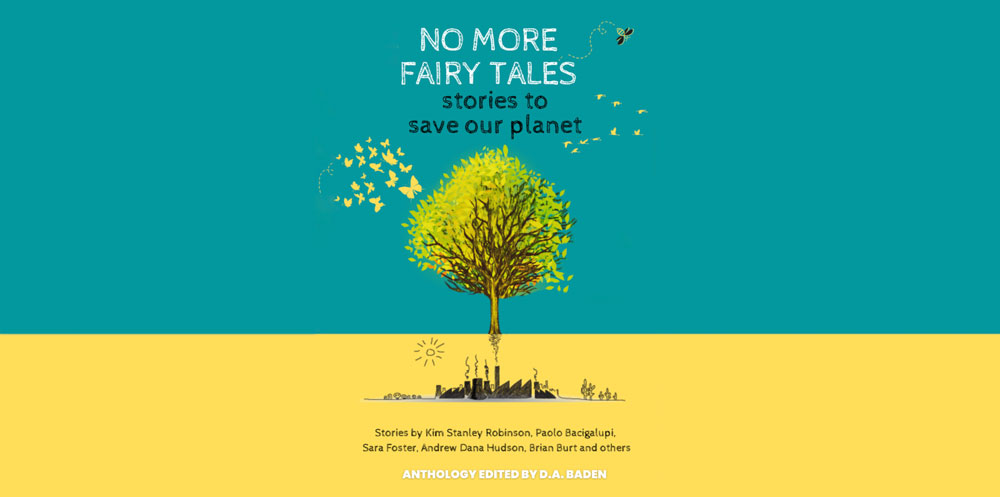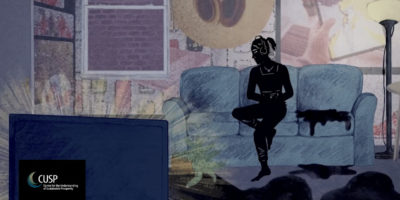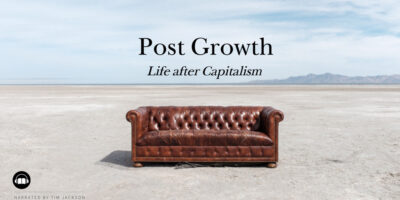No more fairy tales
Research by Dr Denise Baden shows that stories which introduce climate change solutions in the context of an otherwise mainstream story are more likely to inspire greener behaviours than catastrophic tales of climate change. In her guest blog she introduces the latest Green Stories anthology No More Fairy Tales—Stories to Save Our Planet.
Blog by Denise Baden

As the climate crisis becomes ever more urgent, eco-anxiety continues to rise. While often hard to bear, a recent article by psychologist Tracy Dennis-Tiwary suggests that anxiety can be beneficial to help us prepare for the worst. It can also lead to avoidance and denial—not irrational responses in the circumstances one might argue.
To further constructive engagement with and action on climate change, the Green Stories project is taking a solution-focussed storytelling approach. We run writing competitions and other projects to create a cultural body of work that presents positive visions of what a sustainable society might look like and how we can get there.
This year, Green Stories has been working with Herculean Climate Solutions and the Climate Fiction Writers League to compile an anthology of climate solutions wrapped in short stories. Published in time for COP 27, we are targeting a wide audience. The aim is to harness the eco-anxiety most of us feel (in varying degrees) towards constructive actions.
For each story we have prepared to a carefully curated information page that allows the reader to delve deeper on the details of the solutions presented in each narrative. We want to inspire readers to take action and make it as easy as possible for them to do so.
Research from the last green stories publication, Habitat Man, provides solid evidence that stories aimed at a mainstream audience with green solutions embedded can affect behaviour. Findings revealed that 98% of readers adopted at least one of the green solutions mentioned. These included practices such as wildlife gardening, composting, and even changing their will to specify a natural burial.
We hope to gather similar learnings from a survey aimed at readers of the new anthology: No More Fairy Tales: Stories to Save our Planet. This time, as well as asking if the stories changed readers’ behaviour, we are also interested to see if there were any effects on eco-anxiety. Our hope is that by tying issues directly to solutions, we can help reduce eco-anxiety by increasing a sense of agency.
The process of working with a range of climate experts and climate fiction authors to compile the anthology has also revealed much about the divergency of preferred approaches. The engineers love the big, bold, audacious solutions, the more impossible the better. ‘Glaciers melting? Well let’s just refreeze them! Need to build up seawalls and capture carbon? Just plant mangrove terraces.’ This outraged some nature lovers and ecologists who would rather we stop destroying mangroves in the first place (substitute forests, peat, kelp forests, seagrass etc.as needed). The nature lovers abhor the geo-engineering approach, while the engineers claim that we’re geo-engineering all the time anyway in the name of development, so why not do it on purpose and more thoughtfully? Nature lovers claim greenwash and the engineers and techies claim green hush! The social scientists query the point of pouring resources into carbon drawdown projects if we’re still consuming as fast as we can in the name of economic growth.
As editor it’s been a challenge reconciling all these viewpoints. Each story was written by a professional writer and then honed by climate experts. The stories I co-wrote myself as a social scientist, with Steve, a chemical engineer and Martin a comedy writer were an amusing but educational wrangle to determine which aspects got priority. With my social scientist hat on I was keen to ensure that the point about consumption got top position.
I would highly recommend CUSP readers to have a look at the collection. You might especially like The Assassin which imagines eight people in a citizens’ jury debating climate solutions all based on reducing consumption (repair, sharing economy, personal carbon allowances)—only, one of them is an assassin. Similarly, The Award Ceremony addresses the issue of how scriptwriters implicitly promote excessive consumption as an aspiration via characters who fly in private jets, drive fast cars and wear a different outfit each day. Both these stories also promote the idea of switching from the GDP to a well-being index as a way to change the conversation from what’s good for the economy to what’s good for us.
Judge for yourselves if we got it right. Please see the Habitat press website to buy a copy, and we’d love you to complete the survey at the end so we can return to share our findings on whether we were successful in translating eco-anxiety into positive action.
Link
The collection includes short stories from Kim Stanley Robinson, Paolo Bacigalupi, Sara Foster, Andrew Dana Hudson, Brian Burt and others. Further details about the anthology and accompanying material can be accessed via the Habitat Press website: https://habitatpress.com/no-more-fairy-tales/



